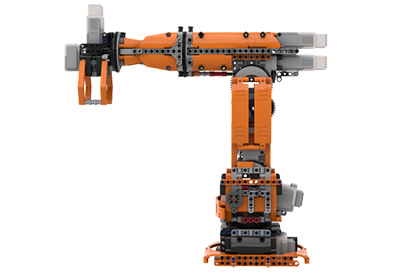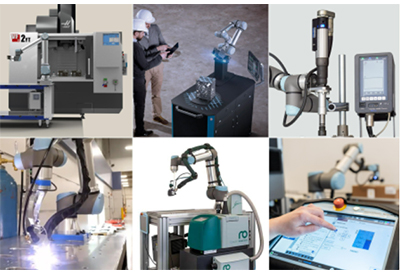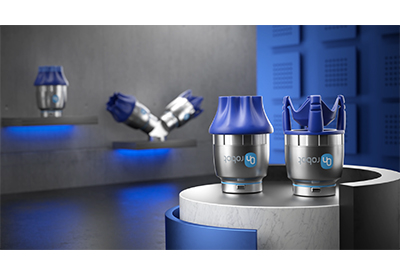Having Fun Learning How to Program Robots Using a Building Block Robot in Desktop Format

June 22, 2020
Whether for school, university, vocational training or even in your own home: the new Education Robot System from OrangeApps is ideal for finding out about 6-axis robots and how to operate them entirely outside an industrial environment. The miniature robot consists of 1,010 plastic system blocks, motors and sensors, and with the appropriate software can be moved and programmed in exactly the same way as real robots from KUKA, such as a KR QUANTEC or KR IONTEC.
Education Robots help budding programmers
For KUKA and other industrial customers, OrangeApps develops individual software solutions for robot systems – normally for those used in industrial applications. The software for programming the Education Robot consists of KUKA.OfficeLite plus an app from OrangeApps. Good to know: KUKA offers special Education licenses for schools and universities. With the training robot, OrangeApps wants to offer budding programmers and robot operators an insight into the mechanical design and electronics of a 6-axis robot.
Robot made from system blocks is primarily intended for educational purposes
The desktop-format robots are available in three variants in limited quantities: Kit 1 contains the software, cables, assembly instructions and a list of the necessary technical building blocks from the supplier of the system blocks. Anyone who already has these building blocks at home can therefore get started with the kit straight away. Kit 2 comprises the complete package of all necessary parts and software. Kit 3 is suitable for all those who don’t have the patience, desire or time to build the robot themselves: here, the robot is delivered fully assembled, including software.
No prior knowledge is needed to build the robot
Managing Director Daniel Schmidt from OrangeApps, the inventor of the Education Robot System, asserts that “with a little skill, youngsters from the age of 13 or 14 will be able to build the robot in four to five hours.”And in doing so, they effortlessly learn a lot about kinematics, transmissions, motors and other mechatronic components.
















